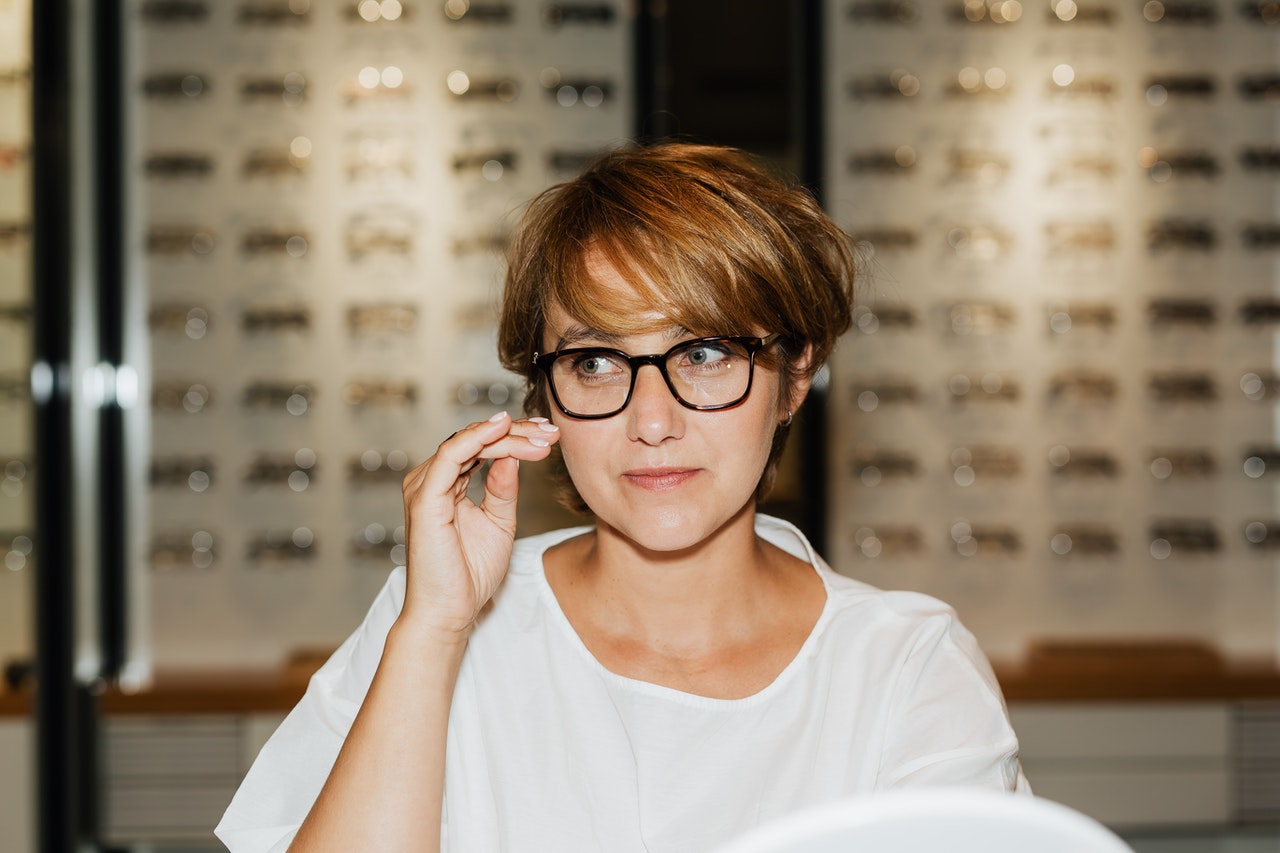Since the start of the pandemic, our daily lives have changed significantly. Over the last couple of years, we have experienced important changes, from wearing masks and sanitising our hands every 10 minutes to working from home.
But while remote working has undoubtedly helped people achieve a better work-life balance, many are also spending more time at home in front of a screen and less time outside. For a lot of people, this has meant that eye health has suffered.
Most of us are so used to staring at a screen for hours on end that we forget to think about the effect it can have on our eyes. While we might ensure we’ve got lumbar support and drink plenty of water throughout the day, we forget to take care of our eyes. So to help you look after your eyes, we’ve put together this guide to help you improve your eye health and your vision.
Spotting the Signs of Deteriorating Eyesight
Only 35% of adults have 20/20 vision, which means chances are your eyesight isn’t perfect. But how can you tell? 20/20 vision is the definition of good eyesight, and it means that you can see objects clearly from 20 feet away. If you’re lucky enough to have 20/20 vision, it’s unlikely that you’ll need glasses for day-to-day activities.
If the world doesn’t appear clear to you most of the time, then it’s likely that you need glasses — even if you had 20/20 vision at some point in your life. Unfortunately, our vision tends to worsen as we get older, so spotting the signs early is vital. Some of the symptoms of deteriorating vision are:
- Blurred vision
- Eyestrain
- Headaches
- Fuzziness.
If you’ve noticed you’re experiencing any of these, even if you already wear glasses, it could be that your eyesight has worsened. Fortunately, there are ways to improve your vision and maintain eye health, such as:
1. Live Healthy
As with many health issues, healthy eating can help your eyesight. One of the easiest ways to improve your eye health is by making sure the right stuff is on your plate.
Try to eat foods containing omega-3 fatty acids, zinc and vitamins C and E. All these nutrients can help ward off problems like macular degeneration (retina deterioration) and cataracts. There are plenty of foods that are excellent sources of these nutrients, such as:
- Leafy greens — spinach, kale and collards
- Oily fish — salmon, tuna and sardines
- Protein sources — nuts, beans and eggs
- Citrus fruits and juice.
Another reason for keeping on top of your bodily health is that it helps you maintain a healthy weight, reducing your chances of diabetes, a leading cause of blindness.
Unsurprisingly, if you’re a smoker, you should quit as soon as you can. Alongside other health problems, smoking can cause blindness, cataracts and damage your optic nerve and retina.
2. Wear Sunglasses
While sunglasses are undoubtedly a fashion statement, they are so much more than that. Sunglasses protect your eyes from damaging UV rays from the sun. Providing you have the right pair, sunglasses will help protect your eyes from too much UV exposure that can cause cataracts.
But sunglasses aren’t just for those lovely sunny days. Even bright cloudy days can cause you to squint when you’re outside. You might not even realise you’re squinting, but it puts strain on the muscles in your face, which can cause headaches and migraines.
When looking for new sunglasses, always look for glasses that have a UVA or UVB rating. The majority of designer sunglasses have this rating, while some lower price sunglasses provide no UV protection. Always double-check you’re protected.
3. Limit Your Screentime
We are all guilty of spending too much time staring at some sort of screen, whether it’s our phones, computers or the TV when we’re relaxing. Limiting your screen time is much easier said than done, but it’s well worth making an effort. Not only will it help your eyesight, but it’s also excellent for your physical and mental well-being and can help you be more productive.
Adopt the 20-20-20 rule:
- 20 minutes of screentime
- 20 seconds staring at something 20 feet away.
4. Exercise Your Eyes
Exercising your eyes might sound ridiculous, but it can help your eye muscles stretch out, relax and start working correctly again. Stepping up the absurd, take up eye yoga. No, we’re not talking about your eyes doing downward dog, but the logic behind regular yoga applies to your eyes.
Performing these exercises daily, weekly or as often as you can, can help you to avoid straining your eye muscles:
- Focus shifting
- Palming
- Controlled eye-rolling.
5. Book an Eye Test
Last but by no means least, if you’re worried about your eye health, then book an eye test. While all the other tips and exercises on this list can help, an optician can accurately access your eyesight and identify any problems and underlying health conditions.
An optician can determine if you need to get glasses or contact lenses that will solve any symptoms you’ve been experiencing. If you do need to wear glasses, even if it’s just for reading, make sure you pick a pair that you enjoy wearing. Choosing a pair you’re not keen on will mean that you avoid wearing them, and your eyesight will deteriorate further.



 Bitcoin
Bitcoin  Ethereum
Ethereum  Tether
Tether  XRP
XRP  Solana
Solana  USDC
USDC  TRON
TRON  Cardano
Cardano  Lido Staked Ether
Lido Staked Ether  Avalanche
Avalanche  Toncoin
Toncoin